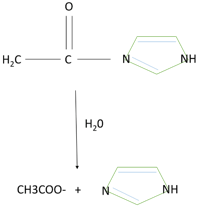Enzyme Assay and Enzyme Catalysis MCQs
Welcome to our comprehensive collection of Multiple Choice Questions (MCQs) on Enzyme Assay and Enzyme Catalysis, a fundamental topic in the field of Enzyme Technology. Whether you're preparing for competitive exams, honing your problem-solving skills, or simply looking to enhance your abilities in this field, our Enzyme Assay and Enzyme Catalysis MCQs are designed to help you grasp the core concepts and excel in solving problems.
In this section, you'll find a wide range of Enzyme Assay and Enzyme Catalysis mcq questions that explore various aspects of Enzyme Assay and Enzyme Catalysis problems. Each MCQ is crafted to challenge your understanding of Enzyme Assay and Enzyme Catalysis principles, enabling you to refine your problem-solving techniques. Whether you're a student aiming to ace Enzyme Technology tests, a job seeker preparing for interviews, or someone simply interested in sharpening their skills, our Enzyme Assay and Enzyme Catalysis MCQs are your pathway to success in mastering this essential Enzyme Technology topic.
Note: Each of the following question comes with multiple answer choices. Select the most appropriate option and test your understanding of Enzyme Assay and Enzyme Catalysis. You can click on an option to test your knowledge before viewing the solution for a MCQ. Happy learning!
So, are you ready to put your Enzyme Assay and Enzyme Catalysis knowledge to the test? Let's get started with our carefully curated MCQs!
Enzyme Assay and Enzyme Catalysis MCQs | Page 4 of 4
Discover more Topics under Enzyme Technology

